2021



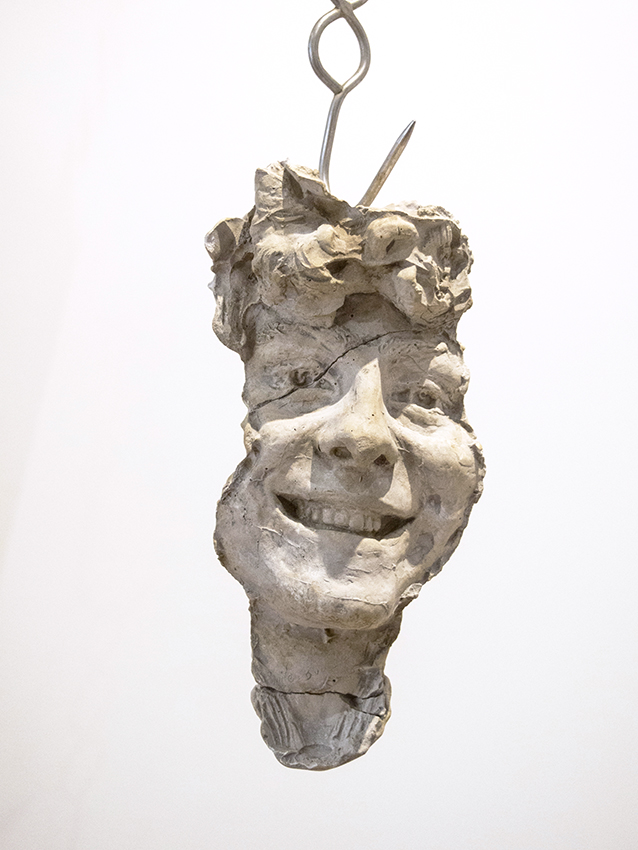


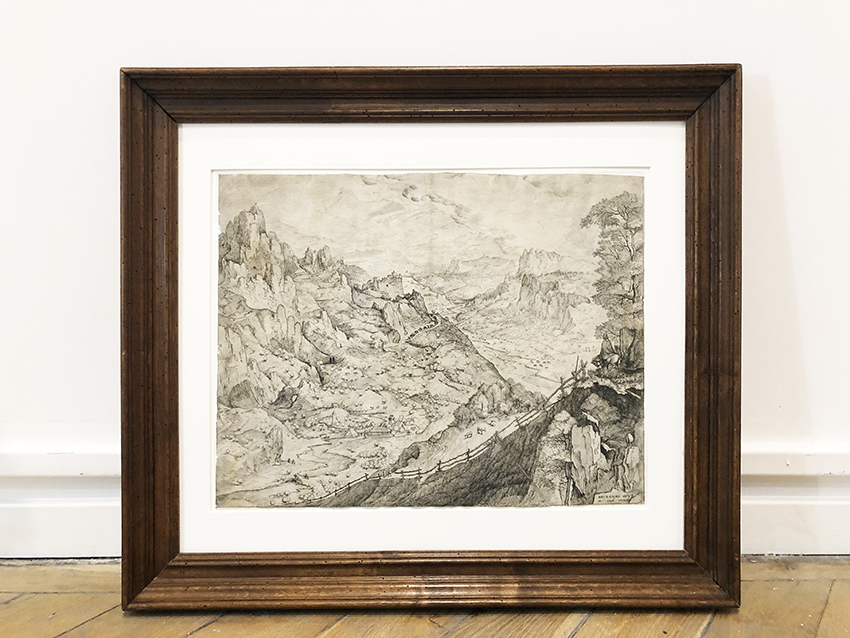


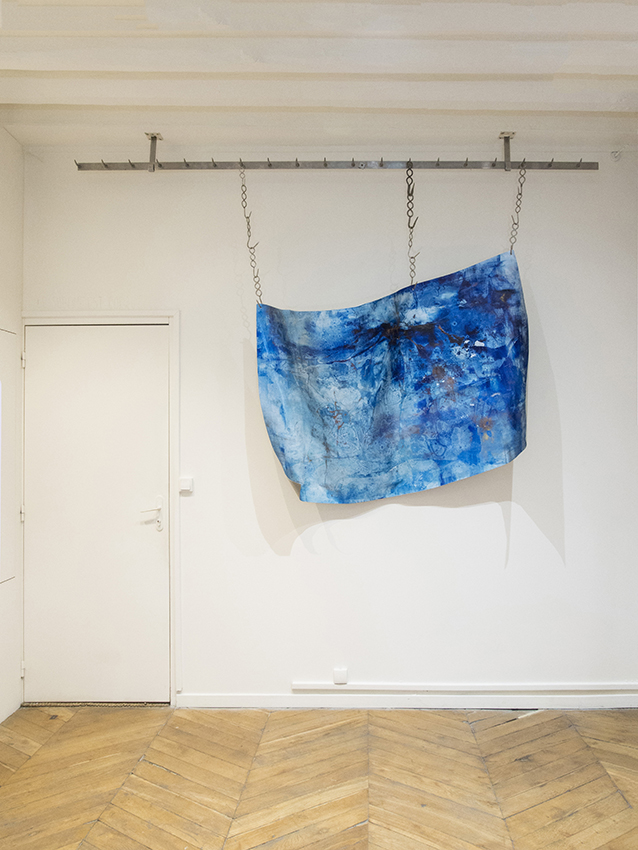



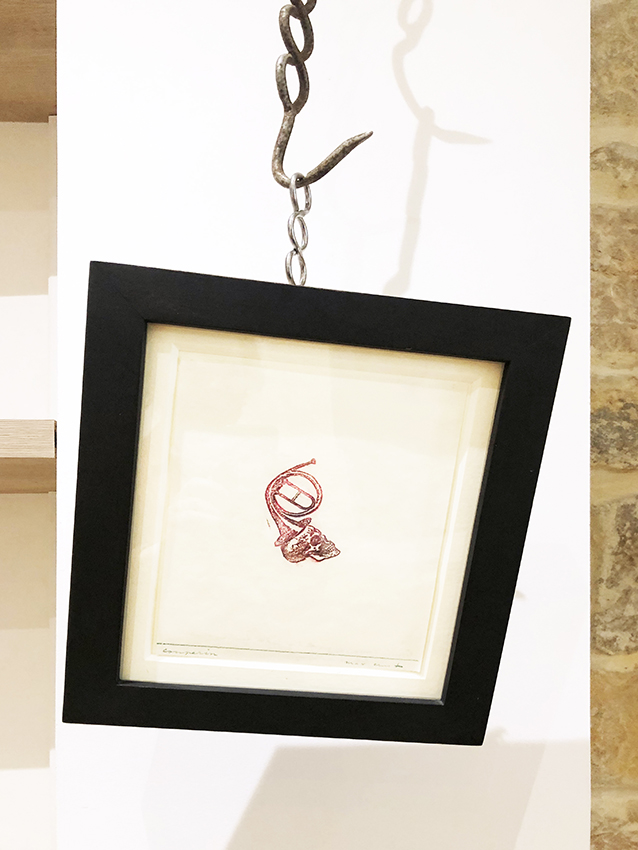


11.03.21 - 8.05.21
LE 1111, Galerie Céline Moine & Laurent Giros Fine art
ANTICHAMBRE
A solo show by Fabien Villon with works from Antoine Bourdelle / Pieter Bruegel the Elder / John Coplans / Max Ernst / Gustave Moreau
Curator Christel Montury, INTERIOR and the collectors
Text by Judicael Lavrador
Si le titre de l’exposition de Fabien Villon, Antichambre, renvoie à la taille, modeste, de la pièce où elle se tient, il renvoie davantage encore à la démarche expérimentale que l’artiste a initiée pour la production mais aussi la présentation de ses nouvelles œuvres. L’antichambre précédait dans les riches demeures la salle de parade, et ce lieu désuet était consacré à toute sorte d’activités spontanées mais jamais formelles.
De fait, l’accrochage imaginé par Fabien Villon pour ses tableaux (qui n’en sont pas tout à fait) n’a rien de formel ni de réglementaire. Ces « peaux », ainsi que l’artiste préfère nommer ces bâches sans châssis, sont suspendues à des crochets de manière à ce qu’elles y pendent un peu de guingois, à la fois bien retenues, mais guère tendues.
Elles affichent ainsi une espèce de négligence froissée que vient dans un premier temps confirmé le capharnaüm accidenté qu’arbore leur surface, qui n’est que traces de plis, de replis, de nœuds, de stries, de dégoulinures bleuâtres en marbrures noirâtres, d’éclaboussures. On a l’impression que les bâches sont creusées de brèches et renflées de reliefs, et que nées du chaos, elles sont vouées à en porter les stigmates. De fait, chaque bâche garde l’empreinte de ce sur quoi elle a été appliquée : un lit défait de pare-brise brisés. Chargées de poudres diverses et variées (de cuivre, d’argent, d’or, volcanique magnétique), choisies pour leur propension à révéler les empreintes et à réfléchir la lumière, ces « peaux » sont donc des écorchées vives qui ont vues et touchées le désastre, l’accident qu’on se prend en pleine face et dont Fabien Villon met à plat les restes avant de le figer pour en recoller les morceaux et en souligner les cicatrices. Les lignes et les tâches, les suintements en surface, sont les empreintes de ces accidents.
Tableaux accidentés, « peaux » et nerfs à vif, les œuvres travaillent aussi à dérouter l’œil, en lui faisant voir toutes les couleurs du spectre. Ainsi, ce qu’il y avait sous la bâche, ces choses cassées en mille morceaux, ne reste pas tout à fait dans l’ombre, puisque les bâches en font battre le négatif à l’air libre (sans châssis) et en pleine lumière. Mais elles gardent en leur creux une opacité caverneuse, puisqu’on ne distingue rien de bien net, que des ombres qui s’agitent, se bousculent, se chevauchent dans les limbes du visible.
Inquiétantes et crues, ces œuvres entraînent à l’exposition au 1111, curatée par Christel Montury (co-fondatrice de l'artist run space Interior and the collectors) des pièces de la collection de Laurent Giros. Elles les entraînent d’abord dans ce même ressac d’accrochage : le visage grimaçant d’un sourire forcé, signé Emile Bourdelle, ne tient en l’air qu’à un fil tandis que la gravure de Gustave Moreau (« La Tête et la Queue du Serpent ») reste de travers et qu’une estampe de Brueghel reste à terre, sur le plancher. Il faut voir dans cette présentation non linéaire, une licence, un bon de sortie, laissée à des œuvres maitresse qui ne demandent par leur esprit aventureux qu’à sortir des ornières. Il s’agit d’œuvres surtout qui travaillent au noir, le cœur, l’esprit, le paysage, le temps. Des œuvres nées de mains expertes (comme celle prise en photographie par Coplans) qui sculptent leurs motifs et les cisèlent pour en soulever la noirceur sans en gommer la beauté. La forme ombrageuse de cette grosse main qui apparaît dans « Scaphandre » de Fabien Villon est de ce point de vue une des clés de l’expo tant elle paraît tendre et monstrueuse à la fois. Le banc, vermoulu résiné, couvert de sédiments après des décennies passées dans les eaux de la Saône, fait figure lui, de siège de l’ « antichambre ». Il est à la fois celui qui en a vu passer et qui en verra d’autres. Celui qui remonte du fond des eaux, chargé des traces du passé et du désastre, sans avoir été terrassé.
Judicael Lavrador
LE 1111, Galerie Céline Moine & Laurent Giros Fine art
ANTICHAMBRE
A solo show by Fabien Villon with works from Antoine Bourdelle / Pieter Bruegel the Elder / John Coplans / Max Ernst / Gustave Moreau
Curator Christel Montury, INTERIOR and the collectors
Text by Judicael Lavrador
Si le titre de l’exposition de Fabien Villon, Antichambre, renvoie à la taille, modeste, de la pièce où elle se tient, il renvoie davantage encore à la démarche expérimentale que l’artiste a initiée pour la production mais aussi la présentation de ses nouvelles œuvres. L’antichambre précédait dans les riches demeures la salle de parade, et ce lieu désuet était consacré à toute sorte d’activités spontanées mais jamais formelles.
De fait, l’accrochage imaginé par Fabien Villon pour ses tableaux (qui n’en sont pas tout à fait) n’a rien de formel ni de réglementaire. Ces « peaux », ainsi que l’artiste préfère nommer ces bâches sans châssis, sont suspendues à des crochets de manière à ce qu’elles y pendent un peu de guingois, à la fois bien retenues, mais guère tendues.
Elles affichent ainsi une espèce de négligence froissée que vient dans un premier temps confirmé le capharnaüm accidenté qu’arbore leur surface, qui n’est que traces de plis, de replis, de nœuds, de stries, de dégoulinures bleuâtres en marbrures noirâtres, d’éclaboussures. On a l’impression que les bâches sont creusées de brèches et renflées de reliefs, et que nées du chaos, elles sont vouées à en porter les stigmates. De fait, chaque bâche garde l’empreinte de ce sur quoi elle a été appliquée : un lit défait de pare-brise brisés. Chargées de poudres diverses et variées (de cuivre, d’argent, d’or, volcanique magnétique), choisies pour leur propension à révéler les empreintes et à réfléchir la lumière, ces « peaux » sont donc des écorchées vives qui ont vues et touchées le désastre, l’accident qu’on se prend en pleine face et dont Fabien Villon met à plat les restes avant de le figer pour en recoller les morceaux et en souligner les cicatrices. Les lignes et les tâches, les suintements en surface, sont les empreintes de ces accidents.
Tableaux accidentés, « peaux » et nerfs à vif, les œuvres travaillent aussi à dérouter l’œil, en lui faisant voir toutes les couleurs du spectre. Ainsi, ce qu’il y avait sous la bâche, ces choses cassées en mille morceaux, ne reste pas tout à fait dans l’ombre, puisque les bâches en font battre le négatif à l’air libre (sans châssis) et en pleine lumière. Mais elles gardent en leur creux une opacité caverneuse, puisqu’on ne distingue rien de bien net, que des ombres qui s’agitent, se bousculent, se chevauchent dans les limbes du visible.
Inquiétantes et crues, ces œuvres entraînent à l’exposition au 1111, curatée par Christel Montury (co-fondatrice de l'artist run space Interior and the collectors) des pièces de la collection de Laurent Giros. Elles les entraînent d’abord dans ce même ressac d’accrochage : le visage grimaçant d’un sourire forcé, signé Emile Bourdelle, ne tient en l’air qu’à un fil tandis que la gravure de Gustave Moreau (« La Tête et la Queue du Serpent ») reste de travers et qu’une estampe de Brueghel reste à terre, sur le plancher. Il faut voir dans cette présentation non linéaire, une licence, un bon de sortie, laissée à des œuvres maitresse qui ne demandent par leur esprit aventureux qu’à sortir des ornières. Il s’agit d’œuvres surtout qui travaillent au noir, le cœur, l’esprit, le paysage, le temps. Des œuvres nées de mains expertes (comme celle prise en photographie par Coplans) qui sculptent leurs motifs et les cisèlent pour en soulever la noirceur sans en gommer la beauté. La forme ombrageuse de cette grosse main qui apparaît dans « Scaphandre » de Fabien Villon est de ce point de vue une des clés de l’expo tant elle paraît tendre et monstrueuse à la fois. Le banc, vermoulu résiné, couvert de sédiments après des décennies passées dans les eaux de la Saône, fait figure lui, de siège de l’ « antichambre ». Il est à la fois celui qui en a vu passer et qui en verra d’autres. Celui qui remonte du fond des eaux, chargé des traces du passé et du désastre, sans avoir été terrassé.
Judicael Lavrador
11.03.21 - 8.05.21
LE 1111, Galerie Céline Moine et Laurent Giros Fine art
ANTICHAMBRE
Exposition personnelle de Fabien Villon avec des oeuvres d'Antoine Bourdelle / Pieter Bruegel l'ancien / John Coplans / Max Ernst / Gustave Moreau
Curateur Christel Montury, INTERIOR and the collectors
Texte de Judicael Lavrador
If the title of Fabien Villon's show, Antichambre (antechamber), refers to the modest size of the room where it is held, it refers even more to the experimental approach that the artist has initiated for the production but also the presentation of his new works. The antechamber preceded the parade room in the rich mansions, and this old-fashioned place was devoted to all sorts of spontaneous but never formal activities.
In fact, the hanging imagined by Fabien Villon for his paintings (which are not really paintings) has nothing formal or regulatory. These "skins", as the artist prefers to call these tarpaulins without stretchers, are hung on hooks in such a way that they hang a little awkwardly, at the same time well held, but hardly tense.
The artworks display a kind of crumpled negligence that is confirmed at first by the uneven mess that their surface reveals, which is only traces of folds, creases, knots, streaks, bluish drips in blackish marbling, splashes. One has the impression that the tarpaulins are dug of breaches, swollen of reliefs, and that born of chaos, they are doomed to carry the stigmata of it. In fact, each tarpaulin keeps the imprint of what it has been applied to: an unmade bed of broken windscreens. Loaded with various powders (copper, silver, gold, volcanic, magnetic, pigments), chosen for their propensity to reveal imprints and to reflect light, these "skins" are thus flayed alive that have seen and touched the disaster, the accident that one takes in the face and of which Fabien Villon flatten the remains before freezing it to glue back the pieces and underline the scars. The lines and stains, the oozing on the surface, are the prints of these accidents.
Accidental paintings, "skins" and raw nerves, the works also manage to confuse the eye, making it to see all the colors of the spectrum. Thus, what was under the tarpaulin, these things broken into a thousand pieces, does not remain completely in the shadows, since the tarpaulins make the negative beat in the open air (without frame) and in full light. But they keep in their hollow a cavernous opacity, in which one does not distinguish anything quite clear, that of the shadows which agitate, jostle, overlap in the limbo of the visible.
Worrying and raw, these works lead to the exhibition at 1111, curated by Christel Montury (co-founder of the artist run space Interior and the collectors) with pieces from Laurent Giros’ collection. They first drag them into the same hanging backlash: the face grimacing with a forced smile, signed Emile Bourdelle, hangs in the air by a thread while Gustave Moreau's engraving ("La Tête et la Queue du Serpent" / Snake’s head and tail) remains askew and a Brueghel print remains on the floor. This non-linear presentation should be seen as a license, a way out, given to masterpieces whose adventurous spirit only asks to get out of the rut. It is about works that work in the dark, the heart, the spirit, the landscape, the time. Works born of expert hands (like the one Coplans photographed) that sculpt their motifs and chisel them to lift the darkness without erasing the beauty. The shadow shape of this large hand that appears in Fabien Villon's "Scaphandre" (diving suit) is from this point of view one of the keys to the exhibition, as it seems both tender and monstrous. The bench, worm-eaten and covered with sediment after decades spent in the waters of the Saône, is the seat of the "antechamber". It is at the same time the one who has seen some pass and who will see others. The one who comes up from the bottom of the waters, loaded with the traces of the past and of the disaster, without having been struck down.
Judicael Lavrador
LE 1111, Galerie Céline Moine et Laurent Giros Fine art
ANTICHAMBRE
Exposition personnelle de Fabien Villon avec des oeuvres d'Antoine Bourdelle / Pieter Bruegel l'ancien / John Coplans / Max Ernst / Gustave Moreau
Curateur Christel Montury, INTERIOR and the collectors
Texte de Judicael Lavrador
If the title of Fabien Villon's show, Antichambre (antechamber), refers to the modest size of the room where it is held, it refers even more to the experimental approach that the artist has initiated for the production but also the presentation of his new works. The antechamber preceded the parade room in the rich mansions, and this old-fashioned place was devoted to all sorts of spontaneous but never formal activities.
In fact, the hanging imagined by Fabien Villon for his paintings (which are not really paintings) has nothing formal or regulatory. These "skins", as the artist prefers to call these tarpaulins without stretchers, are hung on hooks in such a way that they hang a little awkwardly, at the same time well held, but hardly tense.
The artworks display a kind of crumpled negligence that is confirmed at first by the uneven mess that their surface reveals, which is only traces of folds, creases, knots, streaks, bluish drips in blackish marbling, splashes. One has the impression that the tarpaulins are dug of breaches, swollen of reliefs, and that born of chaos, they are doomed to carry the stigmata of it. In fact, each tarpaulin keeps the imprint of what it has been applied to: an unmade bed of broken windscreens. Loaded with various powders (copper, silver, gold, volcanic, magnetic, pigments), chosen for their propensity to reveal imprints and to reflect light, these "skins" are thus flayed alive that have seen and touched the disaster, the accident that one takes in the face and of which Fabien Villon flatten the remains before freezing it to glue back the pieces and underline the scars. The lines and stains, the oozing on the surface, are the prints of these accidents.
Accidental paintings, "skins" and raw nerves, the works also manage to confuse the eye, making it to see all the colors of the spectrum. Thus, what was under the tarpaulin, these things broken into a thousand pieces, does not remain completely in the shadows, since the tarpaulins make the negative beat in the open air (without frame) and in full light. But they keep in their hollow a cavernous opacity, in which one does not distinguish anything quite clear, that of the shadows which agitate, jostle, overlap in the limbo of the visible.
Worrying and raw, these works lead to the exhibition at 1111, curated by Christel Montury (co-founder of the artist run space Interior and the collectors) with pieces from Laurent Giros’ collection. They first drag them into the same hanging backlash: the face grimacing with a forced smile, signed Emile Bourdelle, hangs in the air by a thread while Gustave Moreau's engraving ("La Tête et la Queue du Serpent" / Snake’s head and tail) remains askew and a Brueghel print remains on the floor. This non-linear presentation should be seen as a license, a way out, given to masterpieces whose adventurous spirit only asks to get out of the rut. It is about works that work in the dark, the heart, the spirit, the landscape, the time. Works born of expert hands (like the one Coplans photographed) that sculpt their motifs and chisel them to lift the darkness without erasing the beauty. The shadow shape of this large hand that appears in Fabien Villon's "Scaphandre" (diving suit) is from this point of view one of the keys to the exhibition, as it seems both tender and monstrous. The bench, worm-eaten and covered with sediment after decades spent in the waters of the Saône, is the seat of the "antechamber". It is at the same time the one who has seen some pass and who will see others. The one who comes up from the bottom of the waters, loaded with the traces of the past and of the disaster, without having been struck down.
Judicael Lavrador
2019
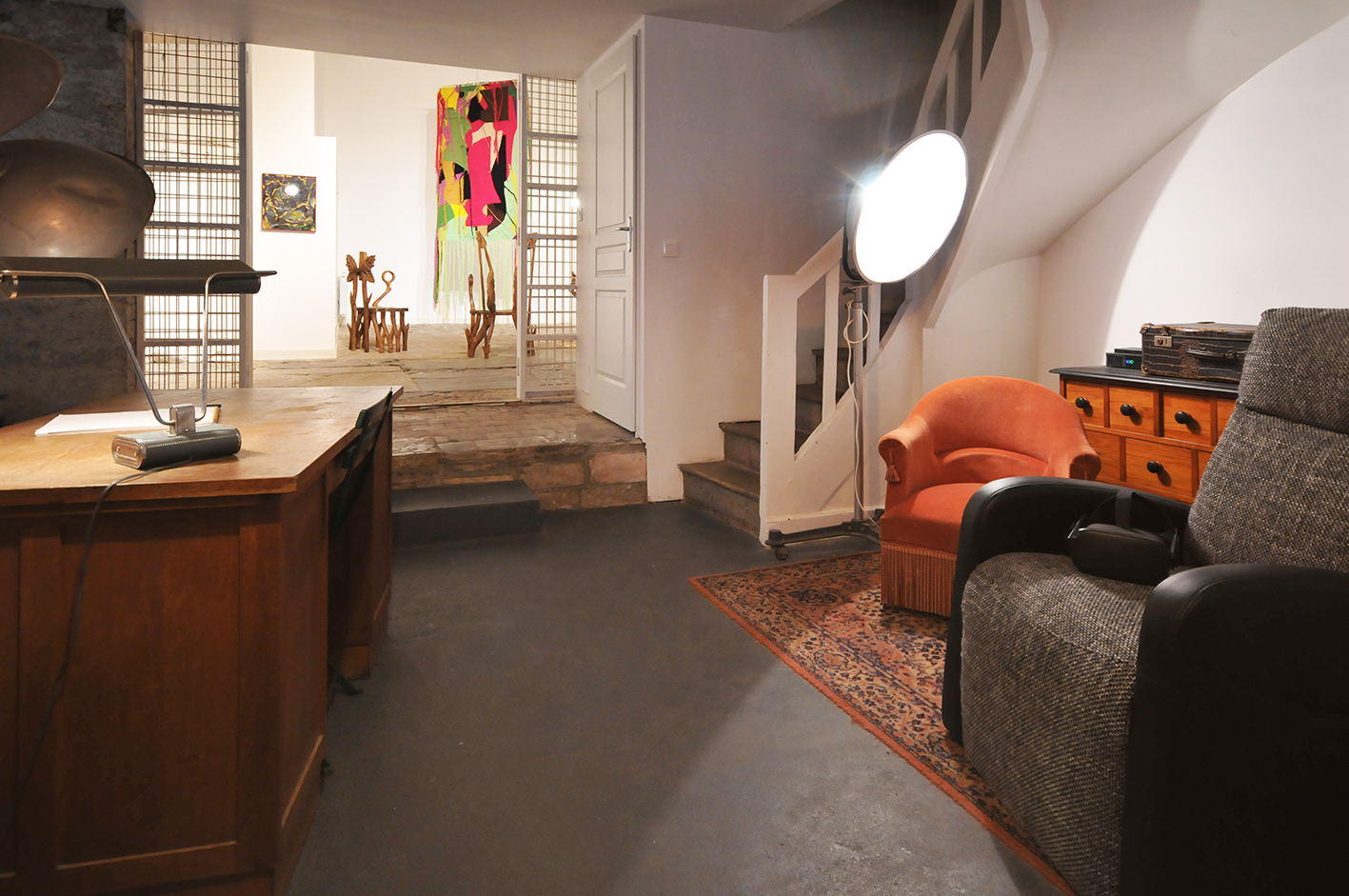
18.09.19
6 pm
Opening reception
COLLECTION n°10
and meeting with the artist
Julie Escoffier
Mélodie Mousset
6 pm
Opening reception
COLLECTION n°10
and meeting with the artist
Julie Escoffier
Mélodie Mousset
18.09.19
18h
Vernissage
COLLECTION n°10
et rencontre avec les artistes
Julie Escoffier
Mélodie Mousset
18h
Vernissage
COLLECTION n°10
et rencontre avec les artistes
Julie Escoffier
Mélodie Mousset
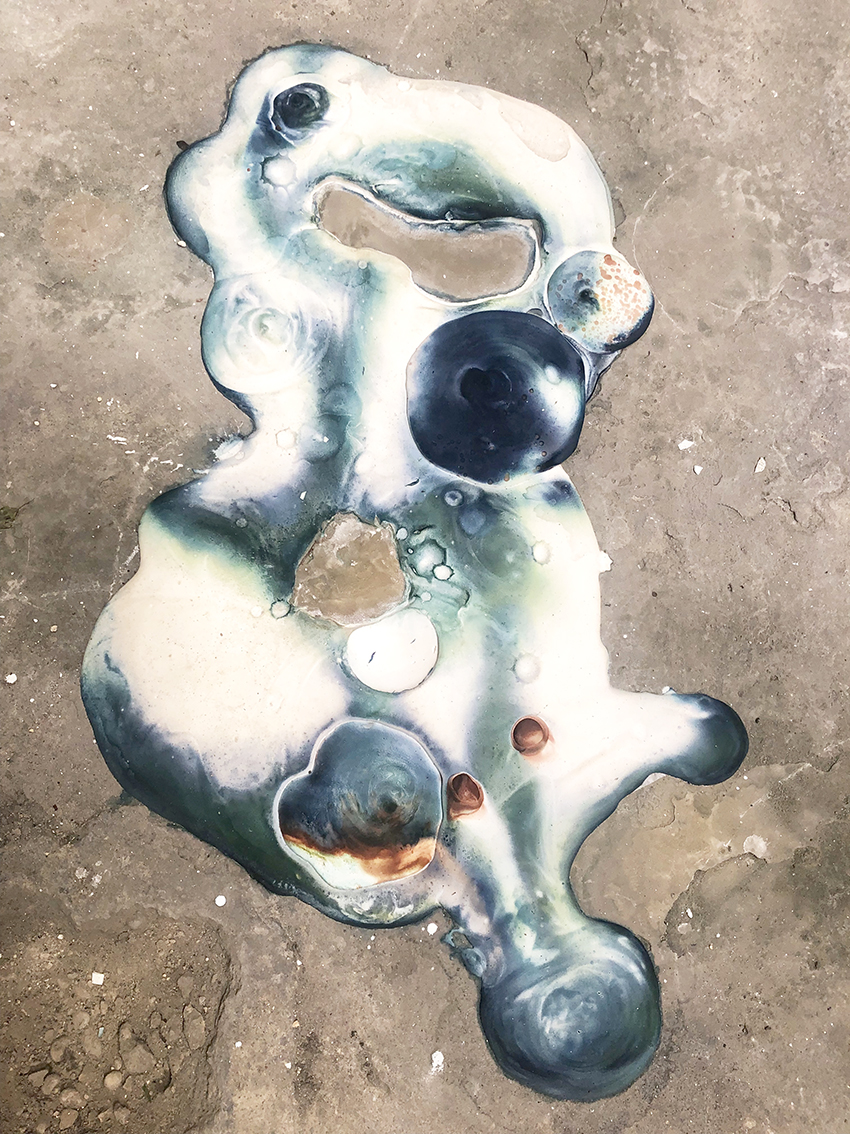
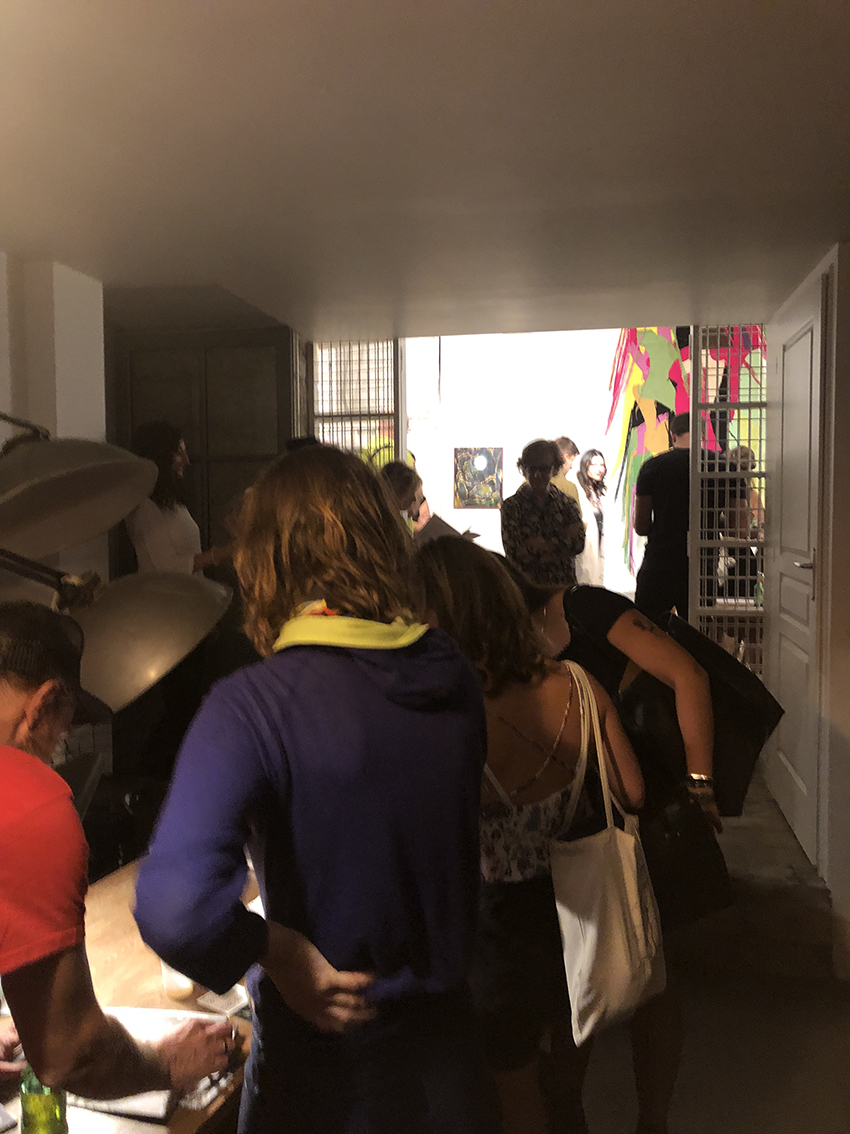
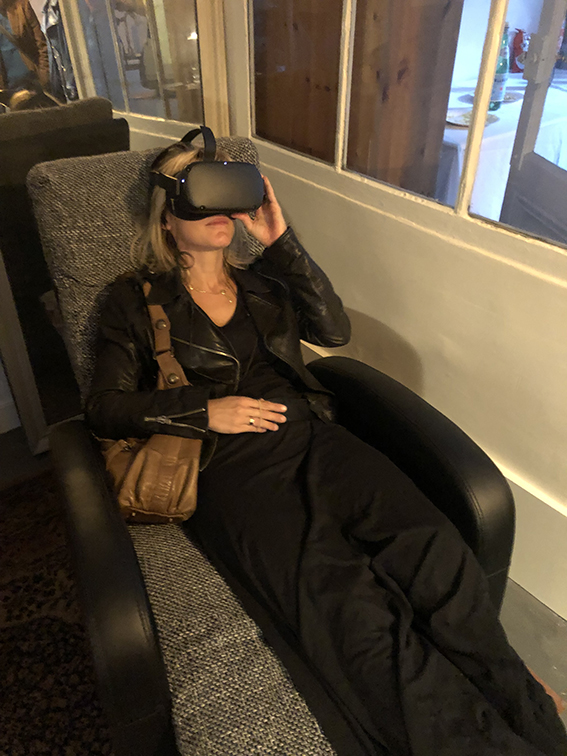
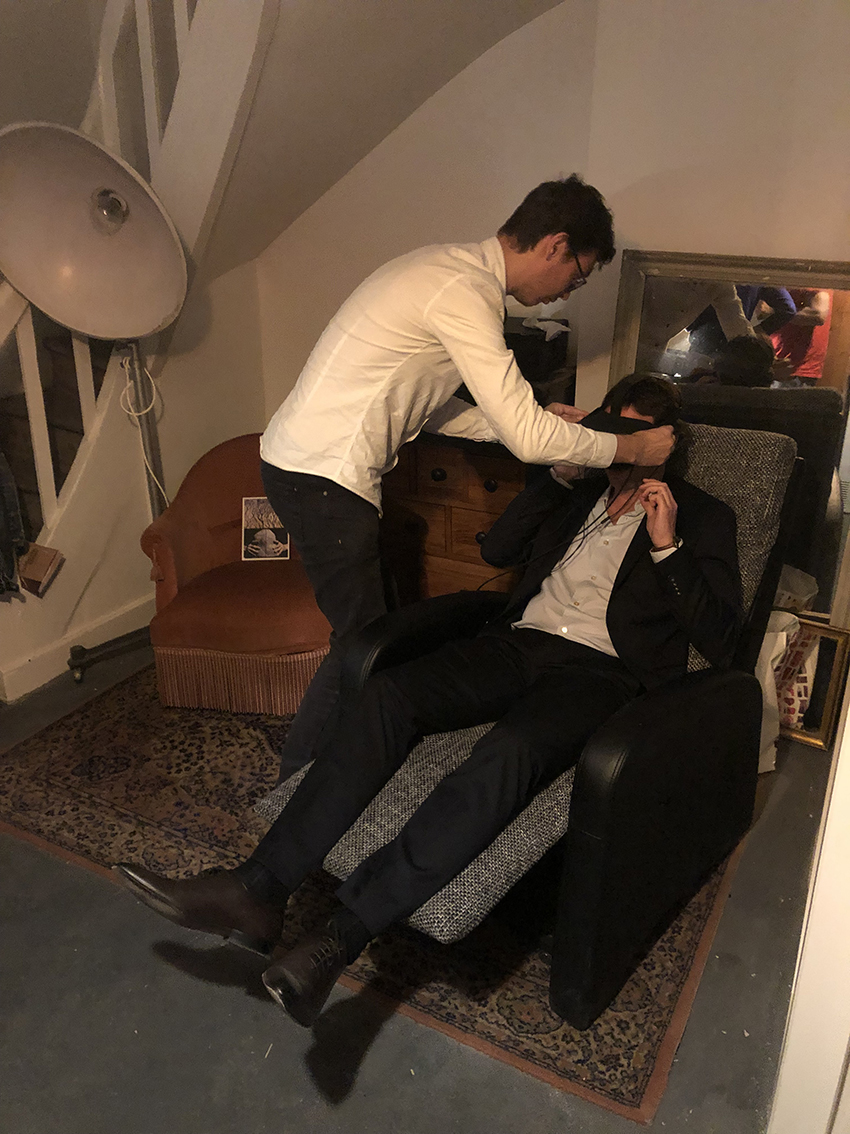
2018
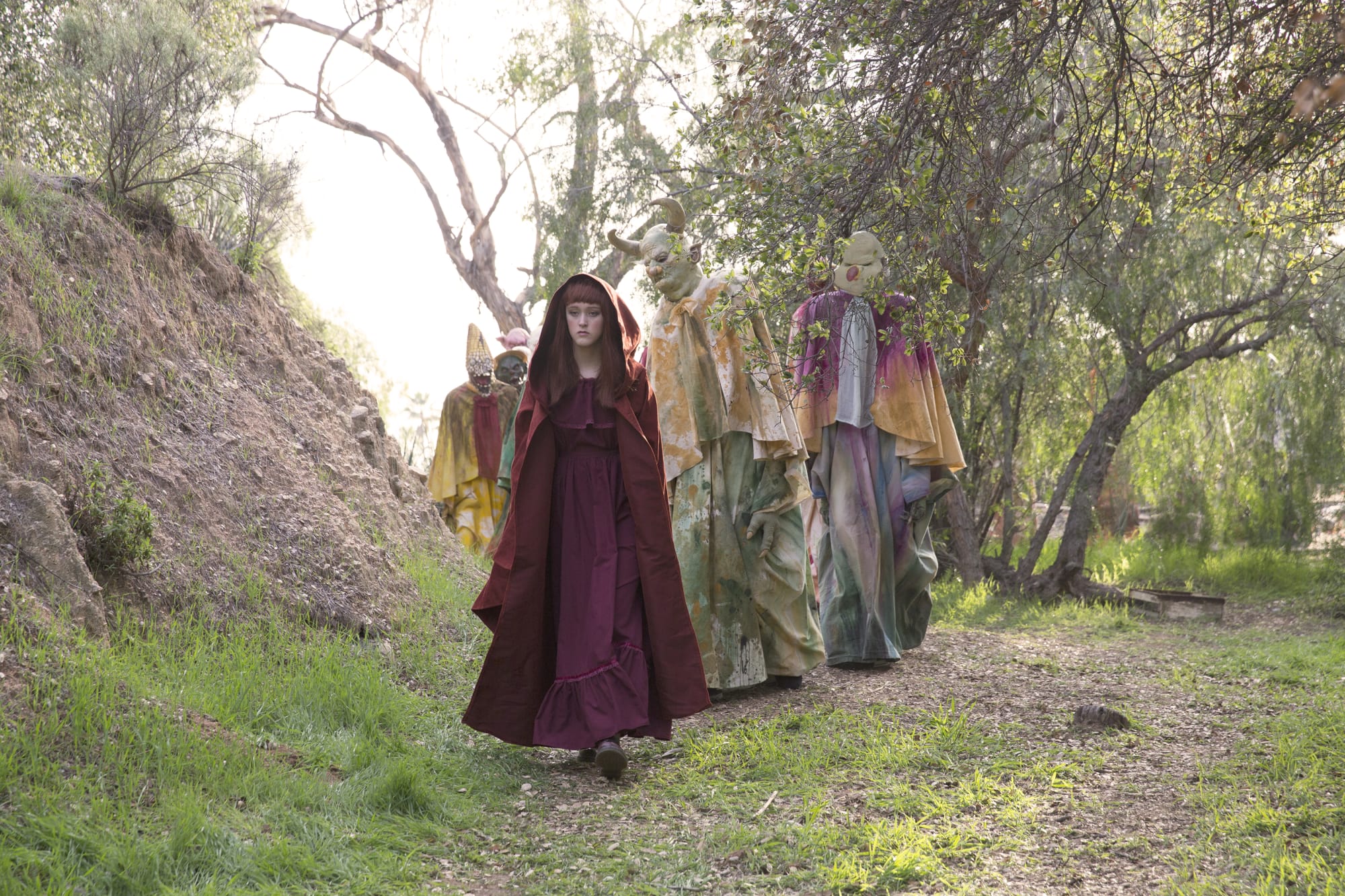
8.08.18
7 pm
Opening reception
COLLECTION n°10
at Camping Domaine le Midi
Noirmoutier island (Fr)
Screening of the film
The day of Forevermore
by Marnie Weber
7 pm
Opening reception
COLLECTION n°10
at Camping Domaine le Midi
Noirmoutier island (Fr)
Screening of the film
The day of Forevermore
by Marnie Weber
8.08.18
19h
Vernissage
COLLECTION n°10
au Camping Domaine le Midi
île de Noirmoutiers
Projection du film
The day of Forevermore
by Marnie Weber
19h
Vernissage
COLLECTION n°10
au Camping Domaine le Midi
île de Noirmoutiers
Projection du film
The day of Forevermore
by Marnie Weber
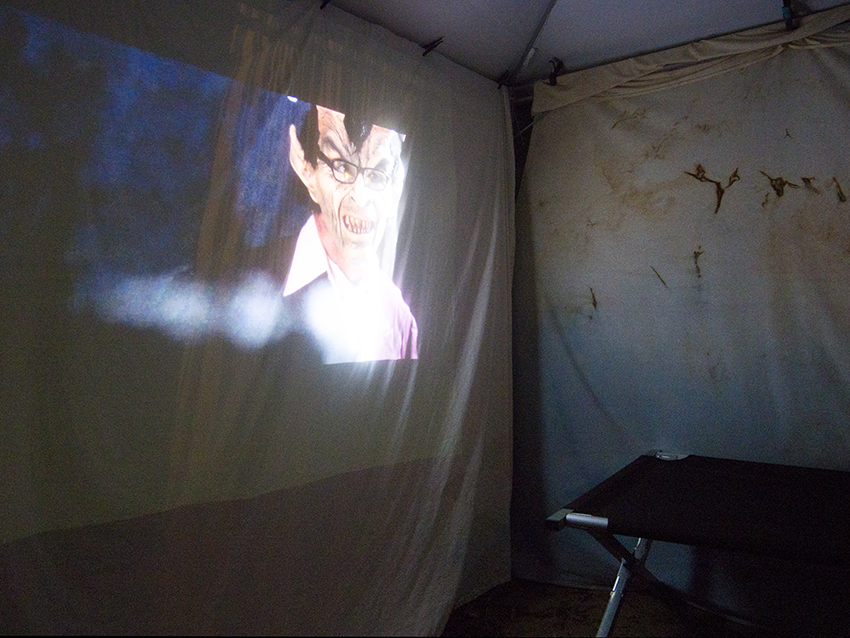


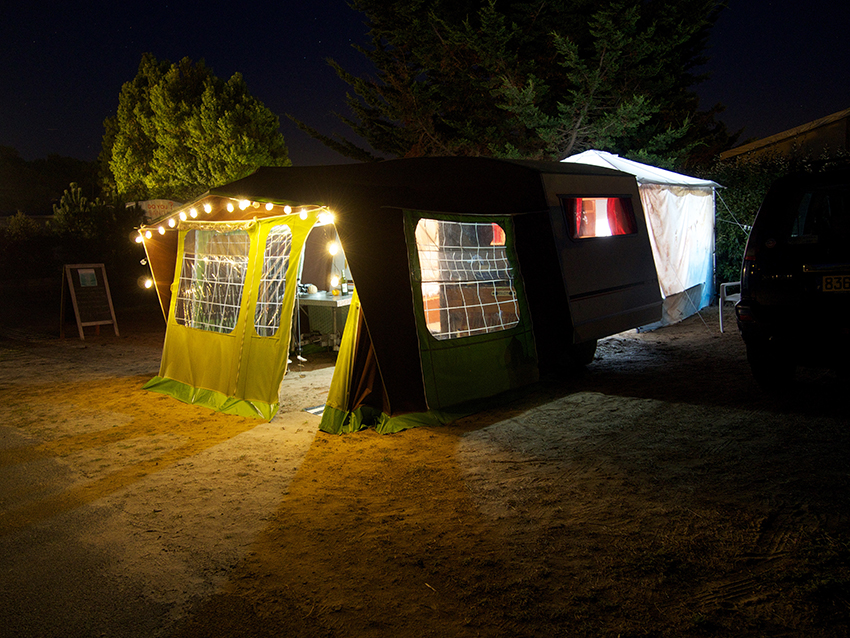
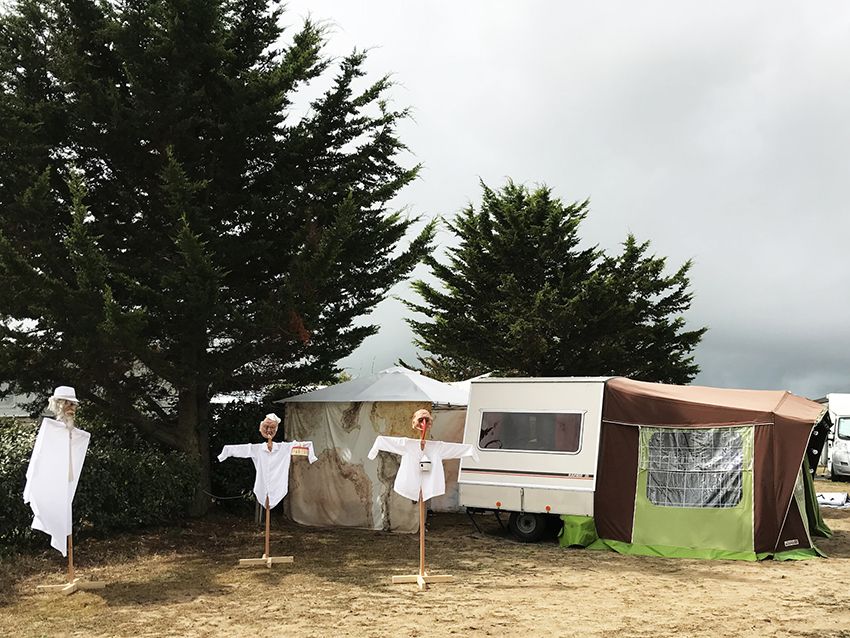
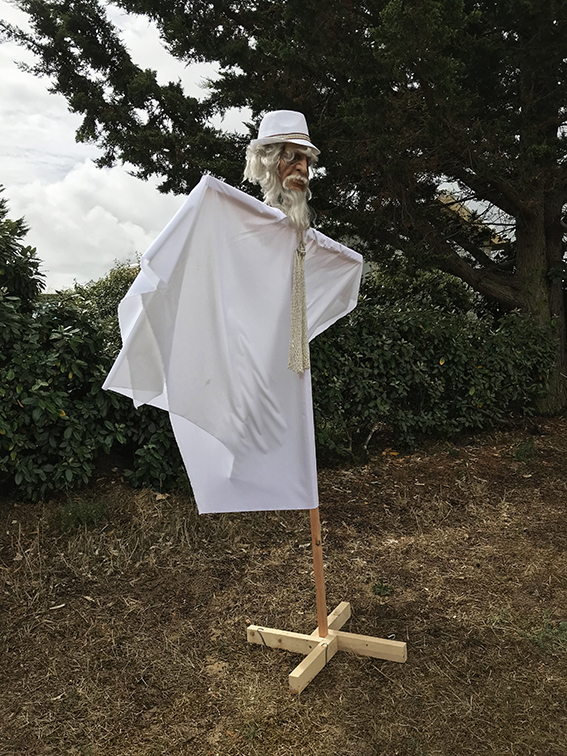
2018
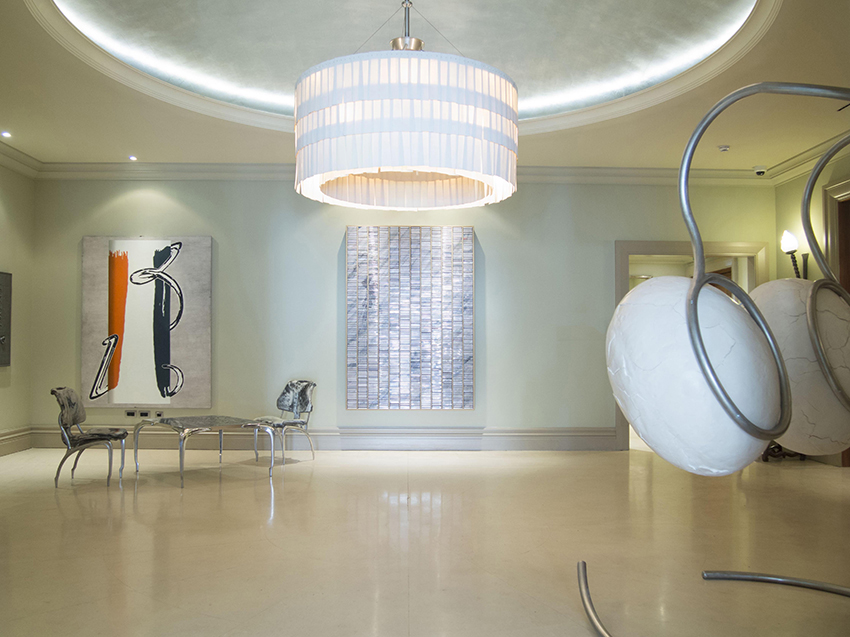
18.04.18
6 pm
Opening reception
COLLECTION n°8
at Hôtel Amigo, Brussels
Cocktail reception
and meeting with the artist
Aline Bouvy
6 pm
Opening reception
COLLECTION n°8
at Hôtel Amigo, Brussels
Cocktail reception
and meeting with the artist
Aline Bouvy
18.04.18
18h
Vernissage
COLLECTION n°8
à l’Hôtel Amigo, Bruxelles
Cocktail dînatoire
et rencontre avec l’artiste
Aline Bouvy
18h
Vernissage
COLLECTION n°8
à l’Hôtel Amigo, Bruxelles
Cocktail dînatoire
et rencontre avec l’artiste
Aline Bouvy
2017

18.09.17
6 pm
Opening reception
COLLECTION n°7
and meeting with the artist
Motoko Ishibashi
18.09.17
18h
Vernissage
COLLECTION n°7
et rencontre avec l’artiste
Motoko Ishibashi
18h
Vernissage
COLLECTION n°7
et rencontre avec l’artiste
Motoko Ishibashi
2016
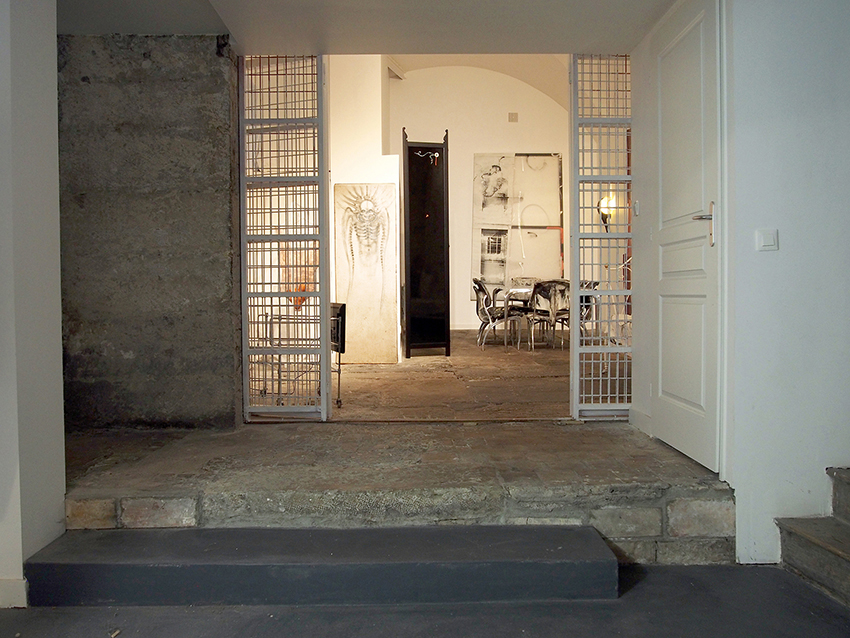
15.03.16
6 pm
Opening reception
COLLECTION n°6
and meeting with the artist
Béla Pablo Janssen
6 pm
Opening reception
COLLECTION n°6
and meeting with the artist
Béla Pablo Janssen
15.03.16
18h
Vernissage
COLLECTION n°6
et rencontre avec l’artiste
Béla Pablo Janssen
18h
Vernissage
COLLECTION n°6
et rencontre avec l’artiste
Béla Pablo Janssen
2014
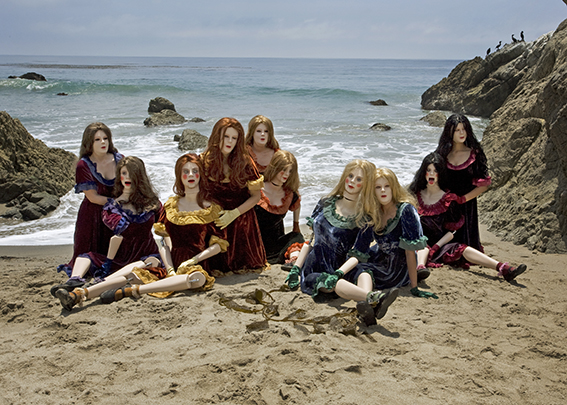
9.09.14
COLLECTION n°4 & n°5
11am
Preview
Brunch by Jocteur
& Launch of Zérodeux review
10.09.14
6pm
Opening and inauguration of a second place at 12 Rue Bellièvre, Lyon 5
Screening of the film
Sea of silence
by Marnie Weber
COLLECTION n°4 & n°5
11am
Preview
Brunch by Jocteur
& Launch of Zérodeux review
10.09.14
6pm
Opening and inauguration of a second place at 12 Rue Bellièvre, Lyon 5
Screening of the film
Sea of silence
by Marnie Weber
09.09.14
COLLECTION n°4 et 5
11h
Preview
Brunch par Jocteur
Lancement de la revue Zérodeux
10.09.14
18h
Vernissage et inauguration d’un second Lieu au 12 rue Bellièvre, Lyon 5
Projection du film
Sea of silence
de marnie Weber
COLLECTION n°4 et 5
11h
Preview
Brunch par Jocteur
Lancement de la revue Zérodeux
10.09.14
18h
Vernissage et inauguration d’un second Lieu au 12 rue Bellièvre, Lyon 5
Projection du film
Sea of silence
de marnie Weber
2013

13.11.13
8 pm
Lecture / performance
79.89.09
by Slavs and Tatars
13.11.13
20h
Lecture / performance
79.89.09
de Slavs and Tatars




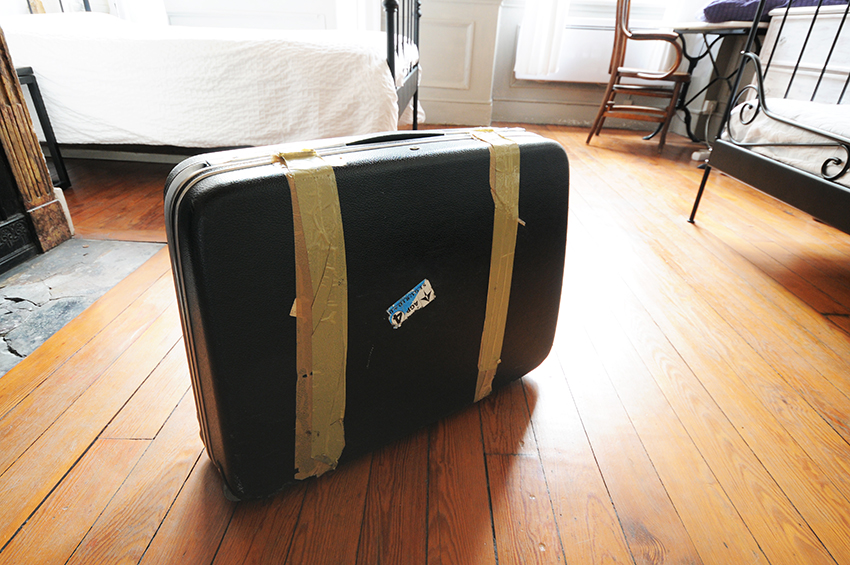
15.03.13
6 pm
Opening reception
COLLECTION n°3
and meeting with the artist
Gregor Hildebrandt
6 pm
Opening reception
COLLECTION n°3
and meeting with the artist
Gregor Hildebrandt
15.03.13
18h
Vernissage
COLLECTION n°3
et rencontre avec l’artiste
Gregor Hildebrandt
18h
Vernissage
COLLECTION n°3
et rencontre avec l’artiste
Gregor Hildebrandt

2012

17.01.12
6 pm
Opening reception
COLLECTION n°2
and meeting with the artist
Alexej Mechstchanow
6 pm
Opening reception
COLLECTION n°2
and meeting with the artist
Alexej Mechstchanow
17.01.12
18h
Vernissage
COLLECTION n°2
et rencontre avec l’artiste
Alexej Mechstchanow
18h
Vernissage
COLLECTION n°2
et rencontre avec l’artiste
Alexej Mechstchanow
2011

24.11.11
8-11 pm
Performance
In between words
by Elisabeth S. Clark
Interprated and played by Romaric Sangars
Biennale de Lyon
Resonance Night event
8-11 pm
Performance
In between words
by Elisabeth S. Clark
Interprated and played by Romaric Sangars
Biennale de Lyon
Resonance Night event
24.11.11
20h-23h
Performance
In between words
d’Elisabeth S. Clark
Interprétée et jouée par Romaric Sangars
Évènement Nuit Résonance
de la Biennale de LYON
![]()
![]()
![]()
![]()
20h-23h
Performance
In between words
d’Elisabeth S. Clark
Interprétée et jouée par Romaric Sangars
Évènement Nuit Résonance
de la Biennale de LYON



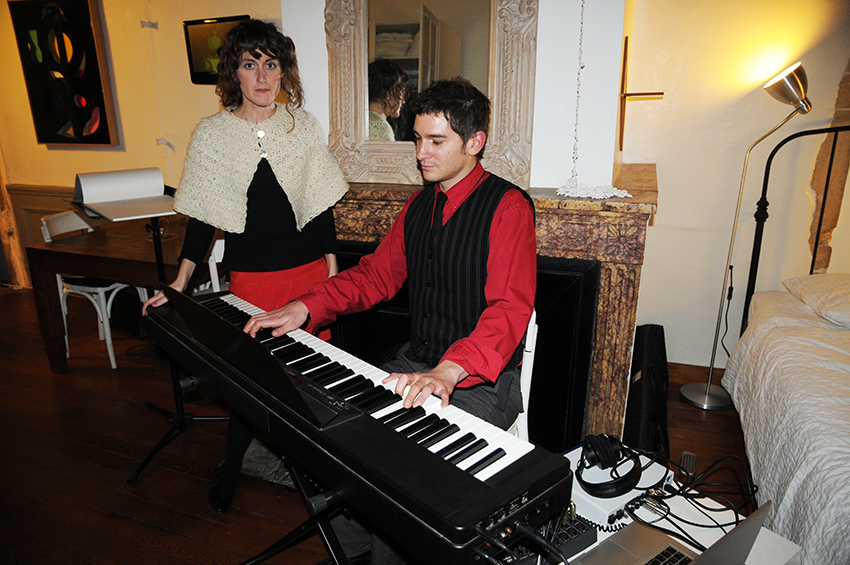

9.11.11
6pm
Opening Reception
INTERIOR and the collectors
presents Elisabeth S. Clark
group show "La biennale de Lyon en résonance à Paris"
2 rue Villersexel 75007 PARIS
until 17.12.11
6pm
Opening Reception
INTERIOR and the collectors
presents Elisabeth S. Clark
group show "La biennale de Lyon en résonance à Paris"
2 rue Villersexel 75007 PARIS
until 17.12.11
9.11.11
18h
Vernissage
INTERIOR and the collectors présente Elisabeth S. Clark
exposition collective "La biennale de Lyon en résonance à Paris"
2 rue Villersexel 75007 PARIS
Jusqu’au 17.12.11
18h
Vernissage
INTERIOR and the collectors présente Elisabeth S. Clark
exposition collective "La biennale de Lyon en résonance à Paris"
2 rue Villersexel 75007 PARIS
Jusqu’au 17.12.11
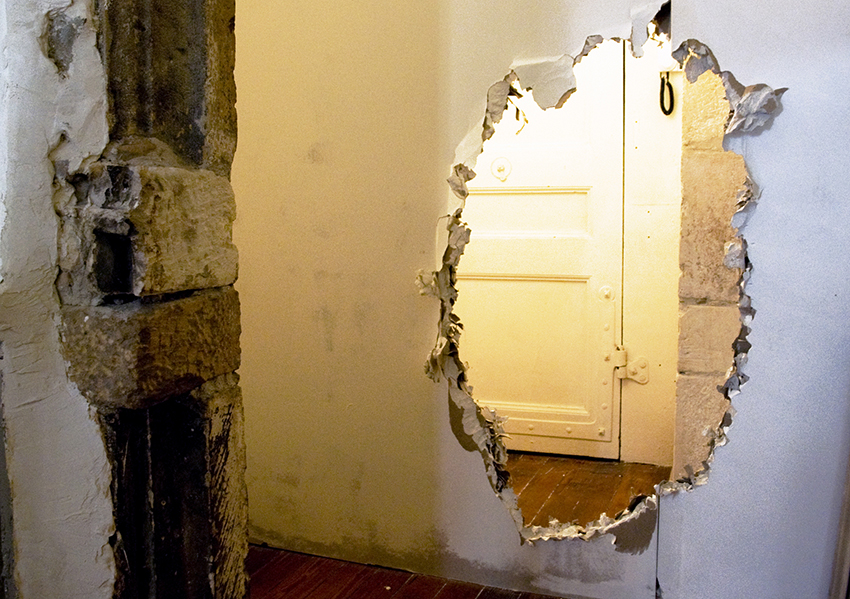
15.09.11
6 pm
Opening reception
COLLECTION n°1
Inaugural show
and meeting with the artists
Xavier Antin, Elisabeth S.Clark, Gary Colcough, Megumi Fukuda, Taro Furukata and Samuel Richardot
6 pm
Opening reception
COLLECTION n°1
Inaugural show
and meeting with the artists
Xavier Antin, Elisabeth S.Clark, Gary Colcough, Megumi Fukuda, Taro Furukata and Samuel Richardot
15.09.11
18h
Vernissage
COLLECTION n°1
Exposition d’inauguration
et rencontre avec les artistes
Xavier Antin, Elisabeth S.Clark, Gary Colcough, Megumi Fukuda, Taro Furukata and Samuel Richardot
18h
Vernissage
COLLECTION n°1
Exposition d’inauguration
et rencontre avec les artistes
Xavier Antin, Elisabeth S.Clark, Gary Colcough, Megumi Fukuda, Taro Furukata and Samuel Richardot
